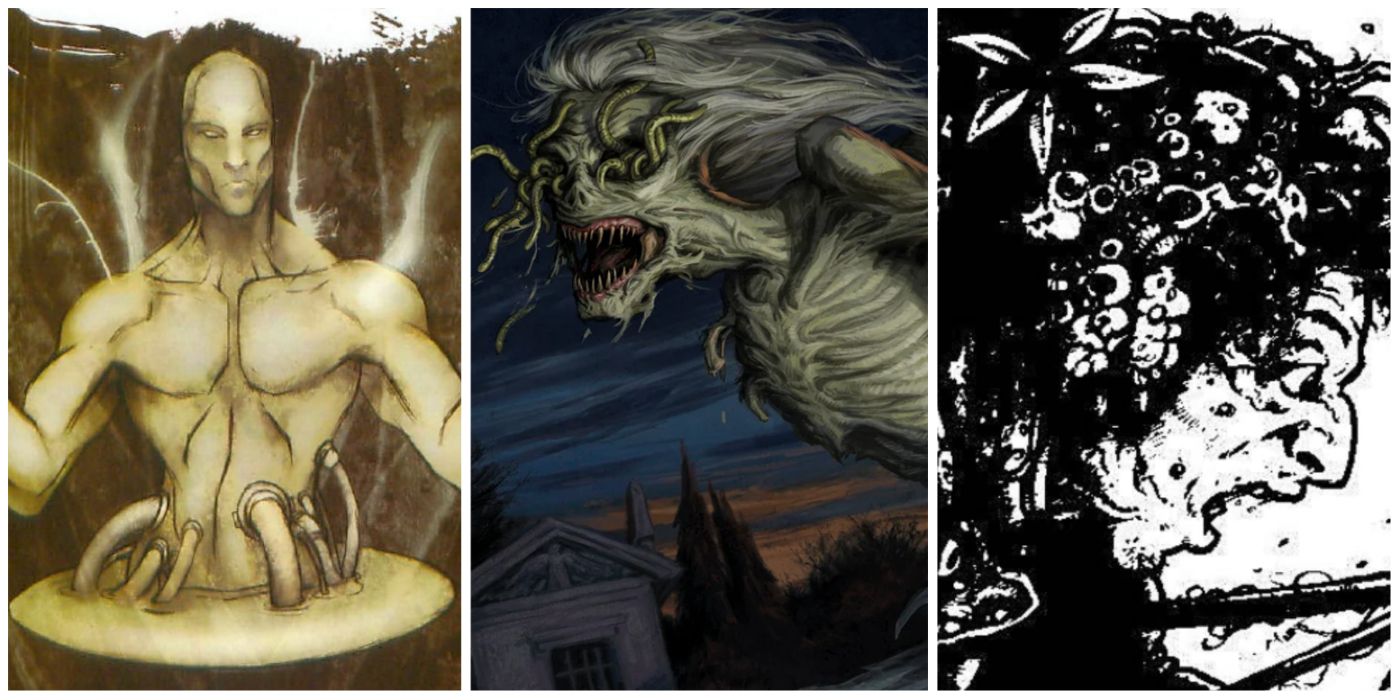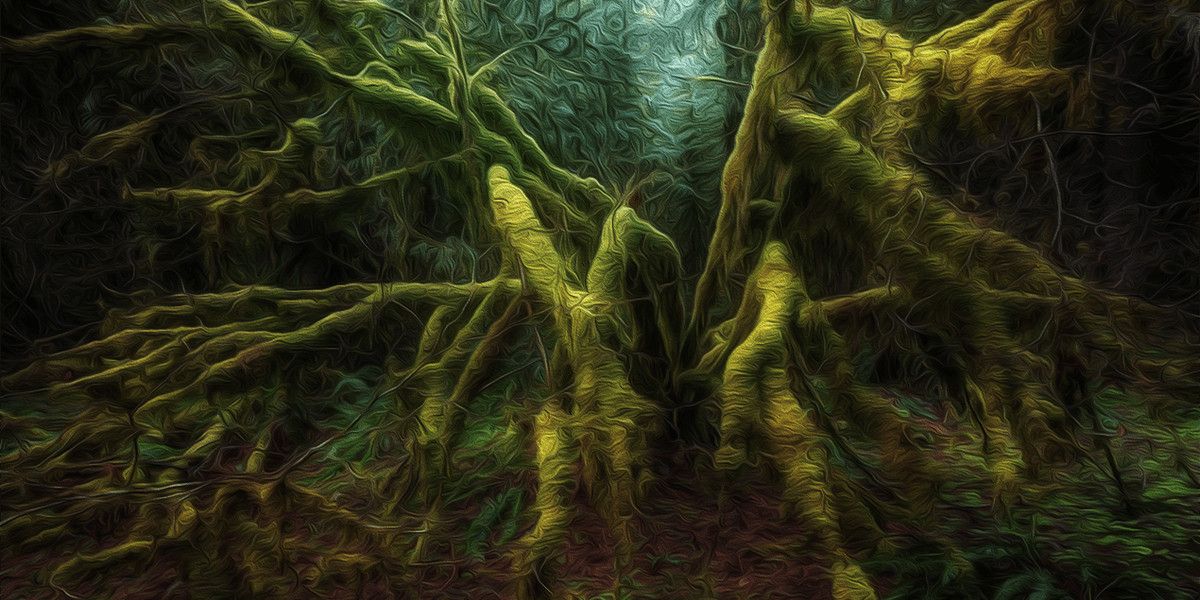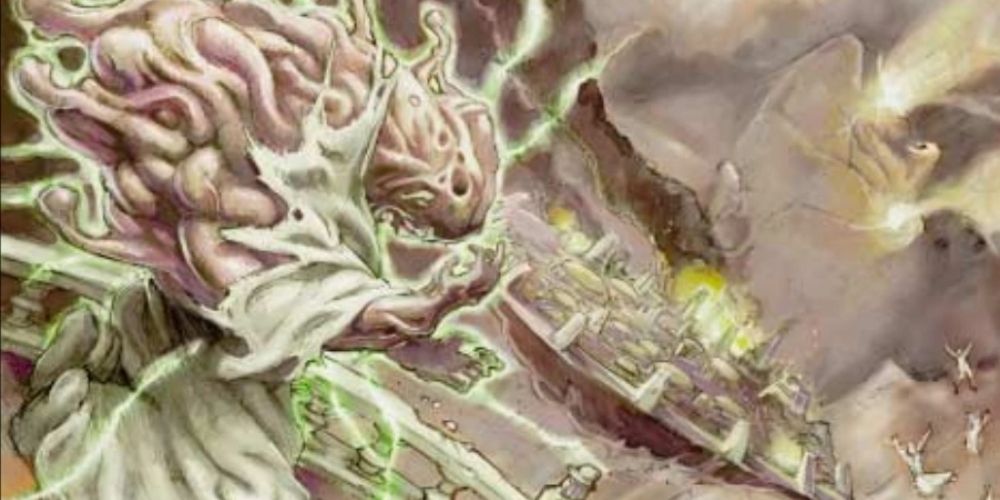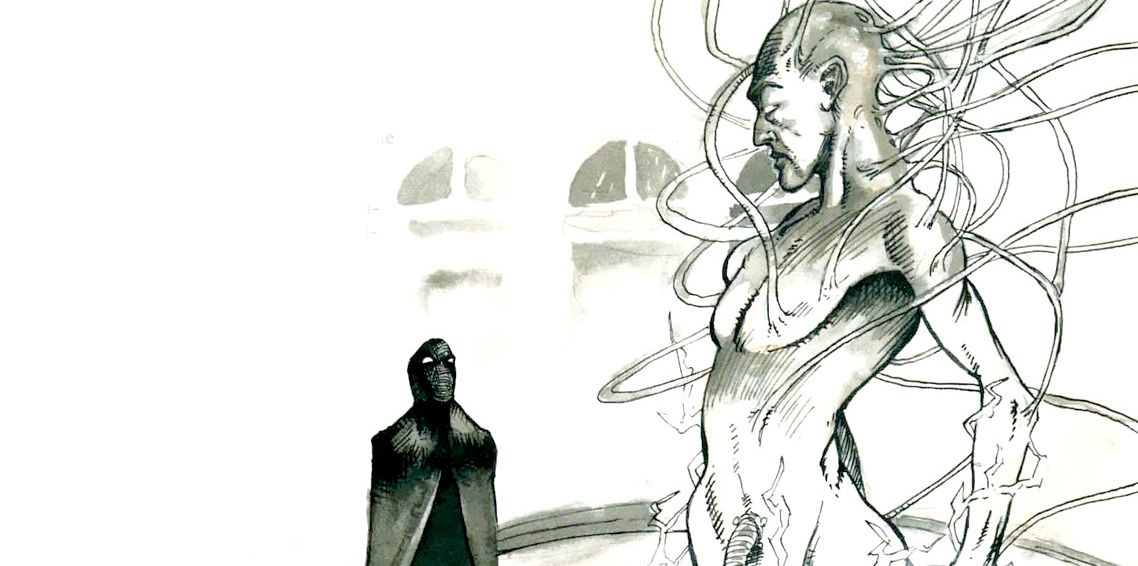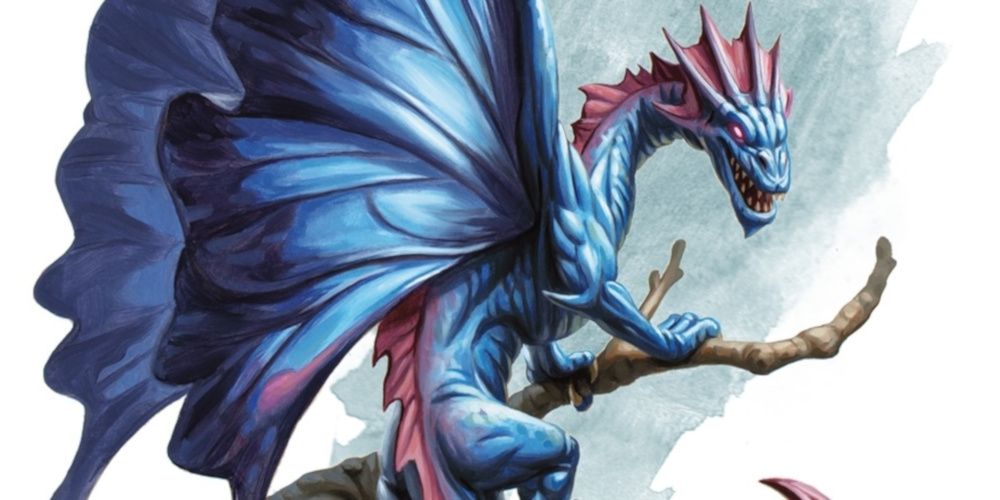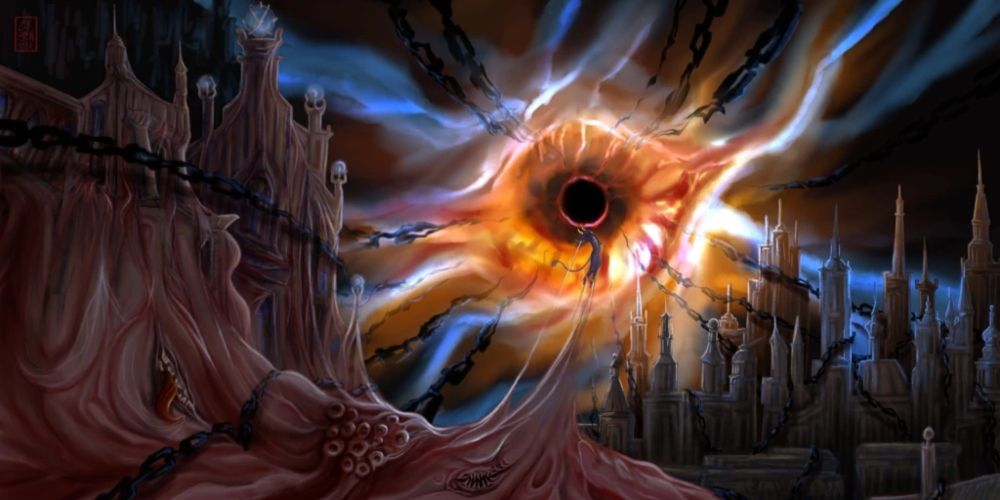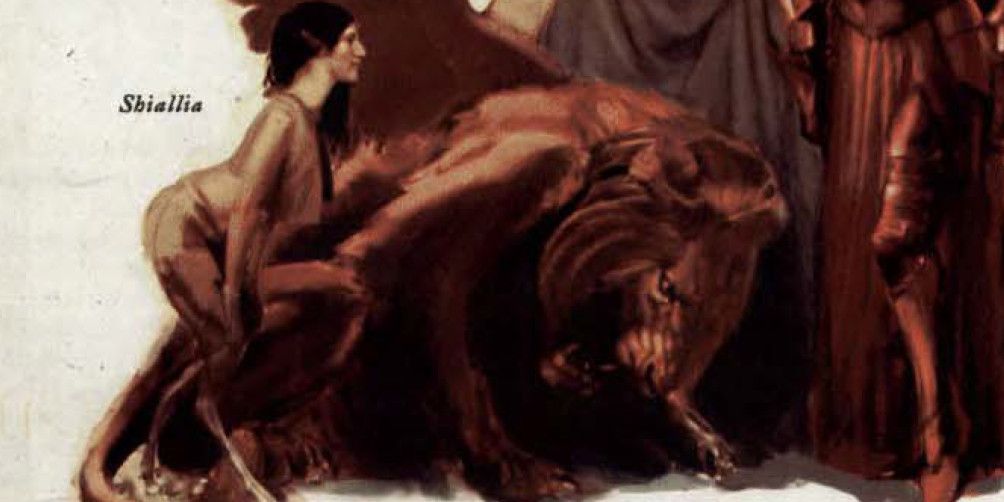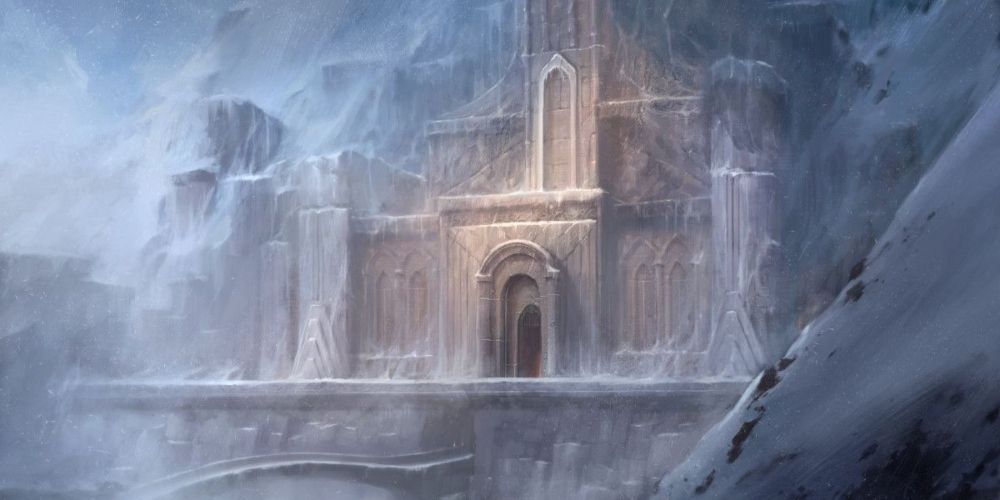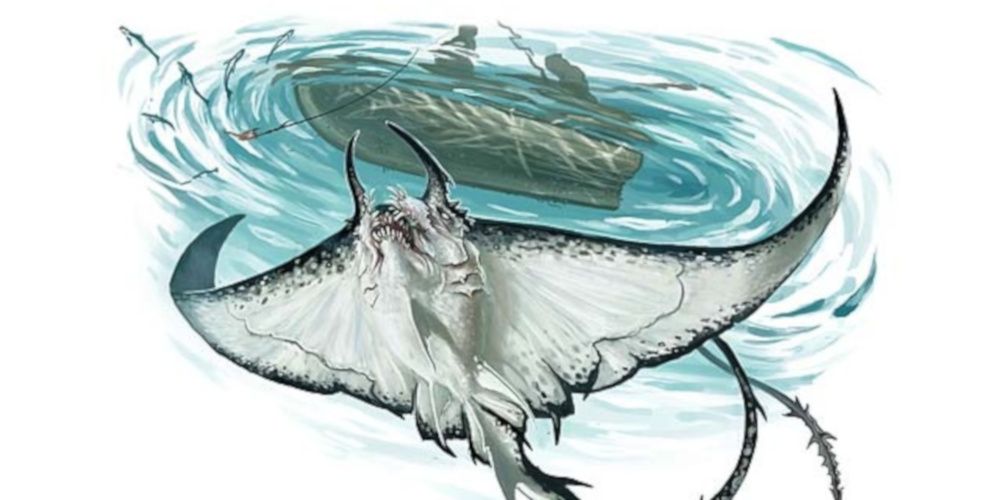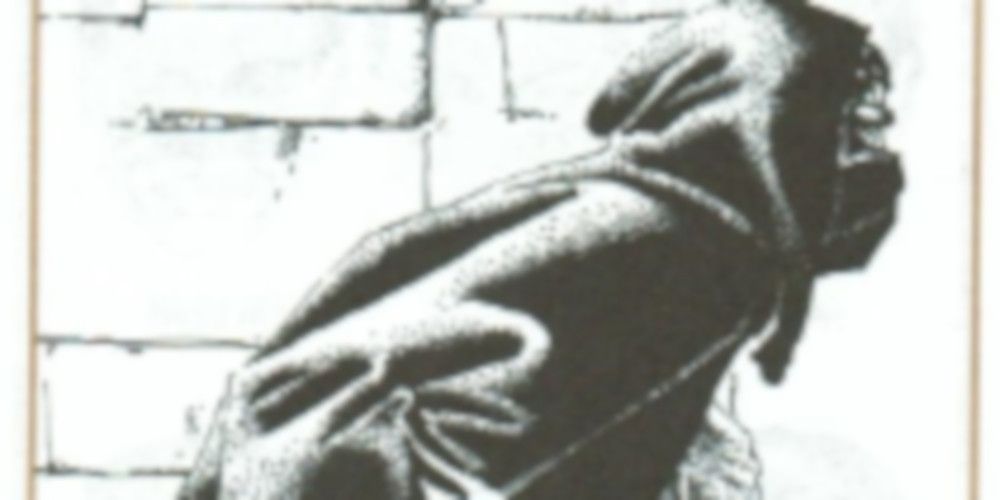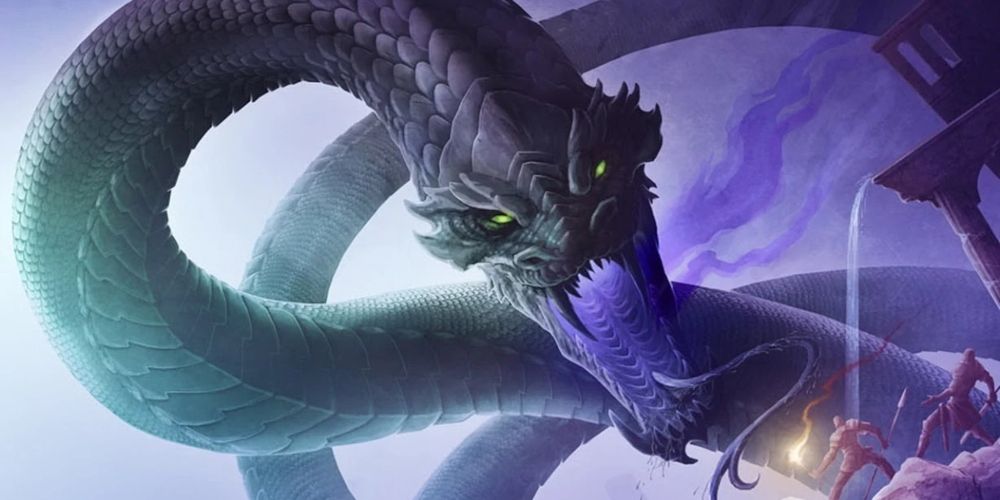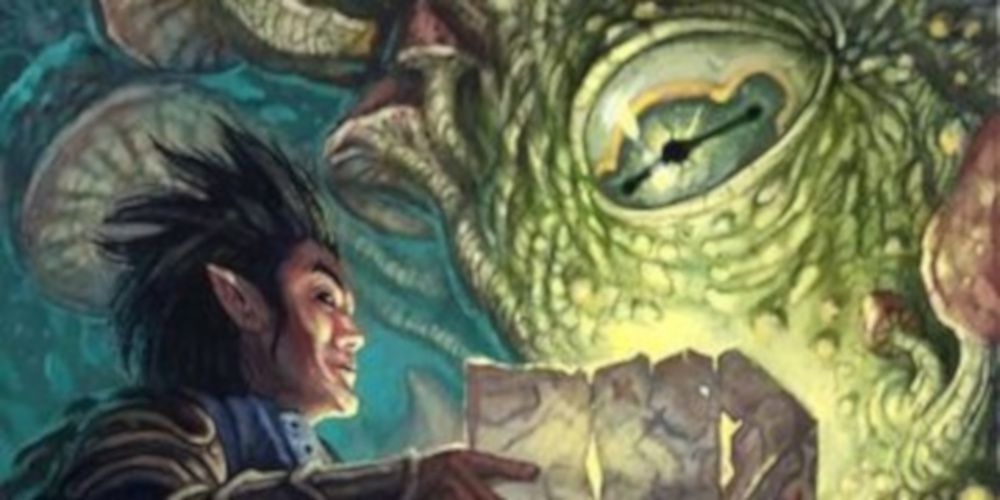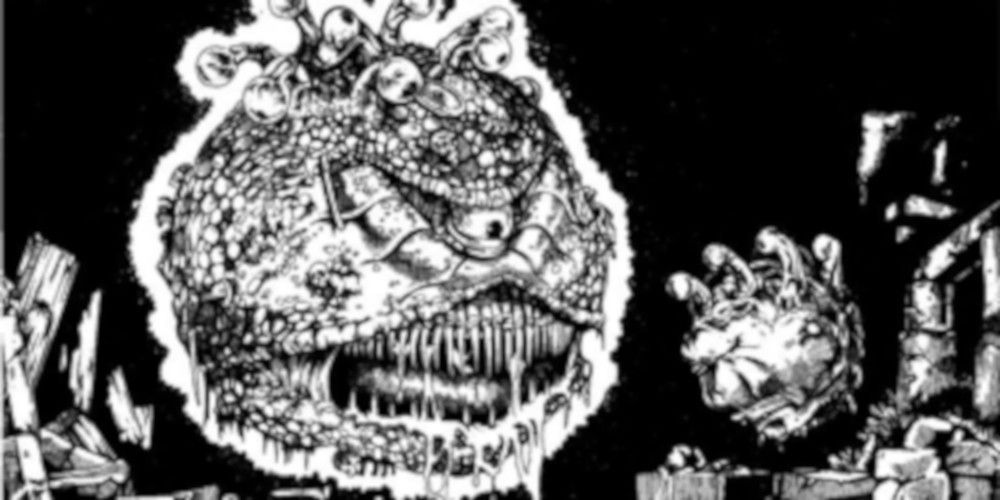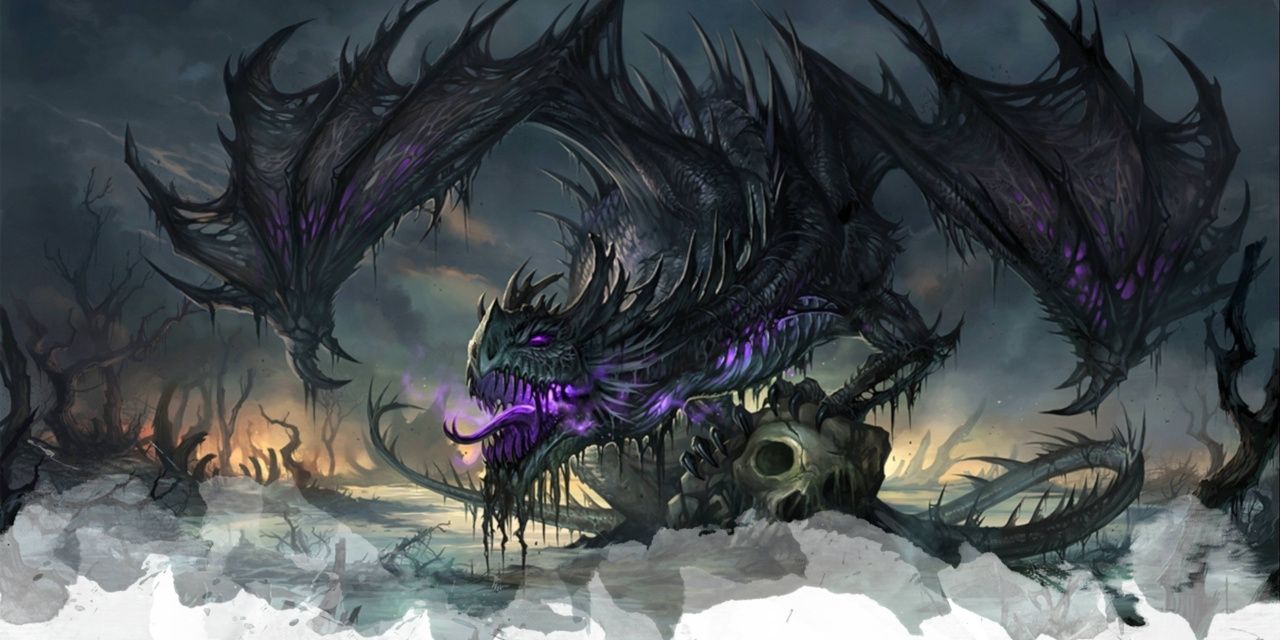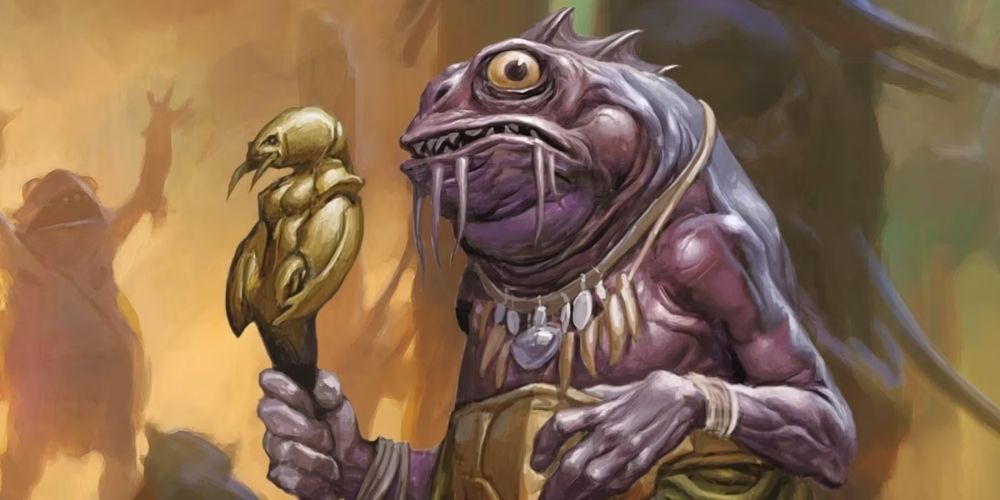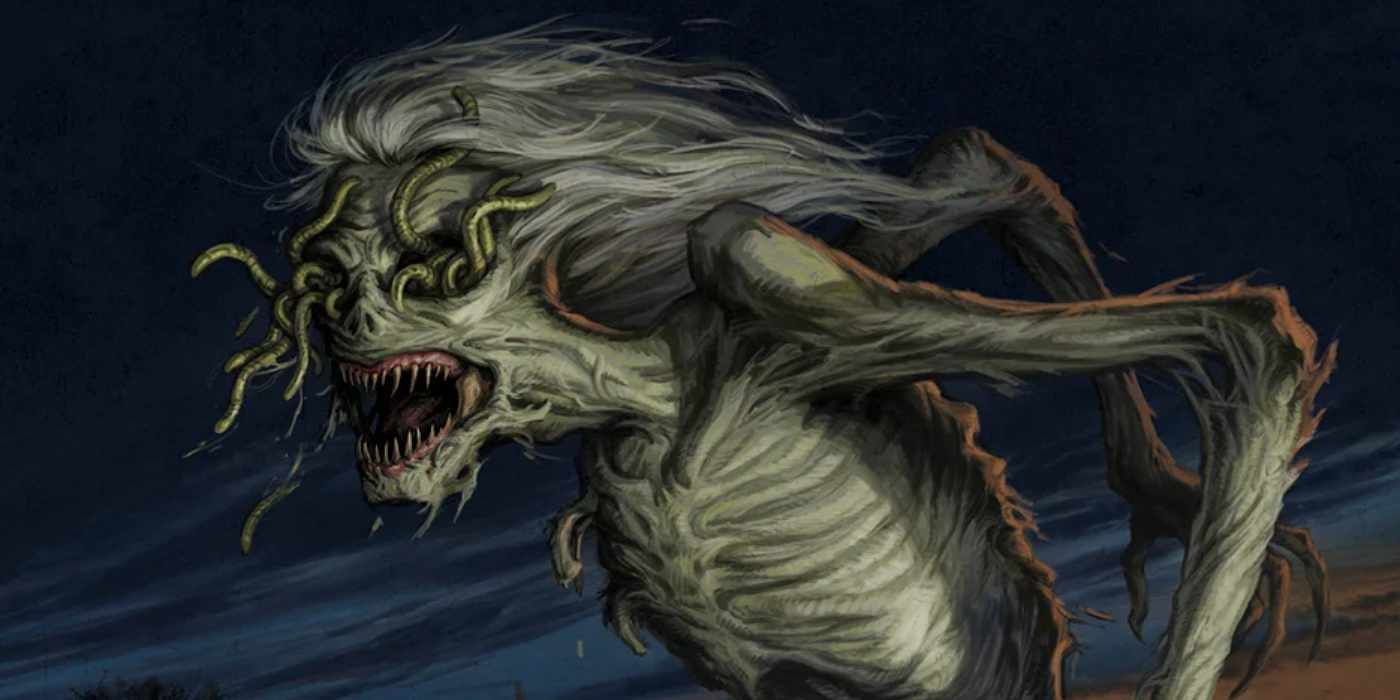The gods and deities of Dungeons & Dragons are a versatile lot. With at least one god for nearly every aspect of life in the multiverse, they come in all shapes and forms. Gods of specific concepts, gods of certain races, and more all come together to create diverse pantheons in every D&D setting.
While some of these gods are fairly conventional by fictional or even real-world standards, there are some which are much, much odder. Whether they're unusual in their appearance, their aspects, or their behavior, there are gods who stick out like a sore thumb in D&D's pantheons.
Updated January 10th, 2022 by Isaac Williams: Gods are integral to nearly every D&D campaign, but the emphasis in published materials tends to be on serious and broadly-applicable gods. Some DMs might want something a little more distinctive or unusual, so this list has been updated to include even more of D&D's weirdest deities.
15 Moander's Multiple Deaths Simply Weren't Enough
God of decay, corruption, and rot
One of the creepier aspects of D&D's Astral Plane is that parts of it are littered with the corpses of dead and forgotten gods. One of the more recent gods to join these corpses is Moander, the god of rot and decay. Moander was a major threat who nearly destroyed several major elven cities in Faerûn's distant past before being weakened when his worshippers were massacred by the elves in retaliation.
More recently, Moander attempted to regain his former power but was prevented by a party of adventurers. This defeat left him weakened enough that during the Time of Trouble, the human bard Finder Wyvernspur was able to kill him. This killing was, however, not entirely successful as Moander's presence has completely corrupted the region of Darkwatch, where his mind still resides.
14 Karus Achieved Godhood For All Of A Few Moments
God of arrogance, ambition, and hubris
Karsus is one of the most infamous wizards in all of D&D, most famous for the folly that saw him become a god for a handful of seconds. Desiring more power at any cost, Karsus set out to replace Mystryl, the goddess of magic. In an unparalleled showing of magic, he cast a twelfth-level D&D spell and slew Mystryl, taking her place.
However, it wasn't to last. Karsus couldn't handle the power and responsibilities of being the god of magic. To stop a cataclysm, Mystryl cut him off from that power, resulting in massive devastation and Karsus' own death. For his unique failure at becoming a god, Karsus lives on in D&D infamy.
13 Primus Is The Eternal, Painstakingly Lawful Ruler Of Mechanus
The Supreme Modron
Planescape delights in being one of D&D's odder settings, throwing the strangest things possible at the players as they explore the multiverse. One example is Primus, the ruler of the plane of Mechanus. While Primus is not technically a god, it functions in a similar role for the modrons.
Primus, like all modrons, is lawful neutral to the extreme, believing only in the sanctity of order and law. This rigid adherence manifests oddly, such as acting as the arbitrator in disputes between the Lower Planes and the Upper Planes. When Primus dies, the most powerful modrons in Mechanus fight. The victor becomes the new Primus and adopts the original's personality.
12 Hlal Is A Jokester And Trickster Dragon Goddess
God of humor, inspiration, and storytelling
While not usually brought up, dragons have their own pantheon of gods that they worship. Among them is Hlal, the goddess of humor, inventiveness, and pleasure. She also serves as the messenger for the greater draconic god Asgorath. Despite being worshiped solely by dragons, she has also appeared in several elven legends.
Personality-wise, Hlal goes against the common stereotype of the stern or vicious dragon. Instead, she is a jokester that enjoys wordplay and surrounds herself with beings with a sophisticated sense of humor. She is benevolently protective of any individuals or races with even a hint of draconic influence about them.
11 Tharizdun Hates Anything And Everything
God of annihilation, darkness, and ruin
The god Tharizdun is one of the most feared and infamous in any D&D pantheon, for both his motivations and his deeds. He is responsible for the creation of the Abyss and for setting free the ancient obyrith demons to corrupt a huge portion of the Elemental Chaos into their own realm.
Tharizdun's acts are so wicked because he is twice-corrupted, once by a shard of pure evil and once by the maddening chaos of the obyriths. He is trapped in another universe where the Abyss has consumed everything and is known as the Chained God as a result. Tharizdun is able to inflict madness and horrific warping effects on others, as shown in several classic D&D modules.
10 Nobanion Spent Time As A Slave To Another God
God of royalty, beasts, and pride
Nobanion is unusual amongst Dungeons & Dragons gods in that his origins are actually unknown. He appeared from an unknown plane to rescue those tormented by Malar, and stood as one of the god of the hunt's longest adversaries. However, in the Time of Troubles, Nobanion suffered an attack that mutated him and left him under Malar's control.
As such, the once-god of nobility has spent time as a hideous bestial creature, doing the evil of Malar's bidding. Although he has been freed from his curse and reverted to his original form, Nobanion still has one of the darker stories of any good-aligned god in Dungeons & Dragons.
9 The Dark Powers Are The Perfect Tormentors
Mysterious rulers of Ravenloft
The beings in charge of Ravenloft's Domains of Dread are not explicitly identified as gods, but they fulfill a similar storytelling role in that setting. They rule over the Land of Mists more totally and more utterly than any Darklord ever could, being the jailers who drag the most wicked villains of any setting into their domain to torture.
Almost nothing is known of the Dark Powers, only that they are immensely powerful. They don't seem to torment villains out of a sense of righteousness, only out of a desire to hurt them as deeply as they can. Wielding every emotional weakness of their prey against them, they seem content to torture for all eternity, with nothing known as to their motives or power.
8 Ilxendren Commands Its Followers To Blight All Species Except One
God of cruelty, mutation, and vampires
Ilxendren is the patron deity of the ixzan, a race of sentient manta-ray creatures that live in the Underdark. They believe that Ilxendren created them, but the truth is a little more complex than they're led to believe.
Ilxendren is one of the few gods in Dungeons & Dragons to actually win the worship of their followers through martial force. It battled a number of other Underdark deities for the right to be the patron of the ixzan, and is now revered falsely as a creator. Using this influence, it bids them to make all other life miserable besides aboleths, whom it admires.
7 Bala Is Unlike Typical Music Gods
God of uplifting music and assassins
The humans of Zakhara in the Forgotten Realms primarily worship the eight Great Gods, representing eight virtues that are valuable to society. There are, however, other gods that the Zakharan worship. Bala is a goddess of music that emphasizes its ability to lift spirits and mitigate suffering.
While gods of music aren't all that odd, Bala is unique because of her militancy. Her main followers were not originally from Zakhara but were forced to flee there due to persecution from the Pantheist League. As such, Bala maintains a cadre of bardic assassins who target Pantheists - not something one expects from an uplifting musical god.
6 Dendar Is A Sun-Eating Serpent Of Nightmares
Eater of the World and Mother of the Night Parade
The beings known as the Elder Evils are some of the most unusual and disturbing figures in all of Dungeons & Dragons, and no small number of them qualify as gods as well. Dendar the Night Serpent is an immensely powerful being who is nearly as old as the cosmos, having come into existence the moment the first mortal had a dream.
Dendar lives on the Fugue Plane and feasts on the nightmares of gods and mortals alike. More than her unusual origins and abilities, however, Dendar has a prophecied role. She will one day devour the sun of the Forgotten Realms' Toril and plunge it into an infinite night, making her a rare evil deity who is guaranteed to eventually destroy the world.
5 Psilofyr Is Capable Of Splitting Into Many Forms
The Carrion King and Lord of the Myconids
One of the interesting aspects of D&D lore is that nearly every type of monster has deities of their own. For example, the myconids have a patron deity in the form of Psilofyr. Psilofyr existed in the form, befitting of a mushroom, of a singular extensive fungal root system found in the dark.
Psilofyr's fungal nature led to him having split into multiple entities. One of these entities would find himself in the realm of Mechanus and another in the Underdark. The main entity has, however, retreated into the Feydark and most myconids do not know of his existence.
4 The Great Mother Creates D&D's Oddest Species
God of magic, tyranny, and beholders
Beholders are already one of D&D's oddest monstrous creatures, and so it stands to reason that their goddess is also odd. The Great Mother is the matron deity of the beholder species, whom they acknowledge as creating them from nothing. Although they worship her, the Great Mother does not respond.
This isn't just because of the xenophobic hatred of all other things that many beholders display. In addition to the oddities of beholders, the Great Mother's mental state is in a sharp decline due to the corrupting effects of demonic knowledge. As such, she's even odder and more isolationist than her children.
3 Null Is A Neutral Draconic God Of Two Aspects
Dragon god of death, judgment, and the undead
Null is the draconic god of death with two unique aspects. One is the Reaver, which emphasizes death as the natural result of living and gave boons to those that accelerate the process. The other is the Guardian, which emphasizes death as simply the starting point of another form of existence.
This dual aspect is a more all-encompassing view than many death gods take in Dungeons & Dragons. It also makes Null almost unique amongst draconic gods for being worshipped by both D&D's evil and good dragons alike, and for being neutral in the wars between Tiamat and Bahamut.
2 Blibdoolpoolp Is A Deliberately Nonsensical God
God of death, evil undersea creatures, and revenge
The kuo-toa are one of the more unusual monsters in Dungeons & Dragons, small fish people who are among the least-threatening-looking creatures in the entire game. They're noted for their unusual behavior and odd obsessions, and most notably for the ability to create gods out of sheer belief.
The best-known result of this is Blibdoolpoolp, the mage goddess of the kuo-toa. Everything about her is odd; from her name to her appearance as a tall human woman with a lobster's head and claws, to her claims of holding fundamental truths about the universe that she hoards jealously. She matches the kuo-toa in oddness perfectly.
1 Kyuss Was Once A Mortal But Now Heralds The End Times
The Worm that Walks
The most monstrous example of a mortal becoming a god is that of Kyuss. A necromancer, Kyuss took control of Wormcrawl Island near the continent of Matzica. There he ruled as a god-emperor before he conducted a bloody ritual to ascend to godhood.
This process transformed Kyuss into a massive being composed of thousands of worms. Also known as an Elder Evil, Kyuss lives for a dark apocalypse known as the Age of Worms, when all living things will be killed and rise again as hideously corrupted undead. His most direct servants, the spawn of Kyuss, are some of Dungeons & Dragons' least pleasant monsters.

